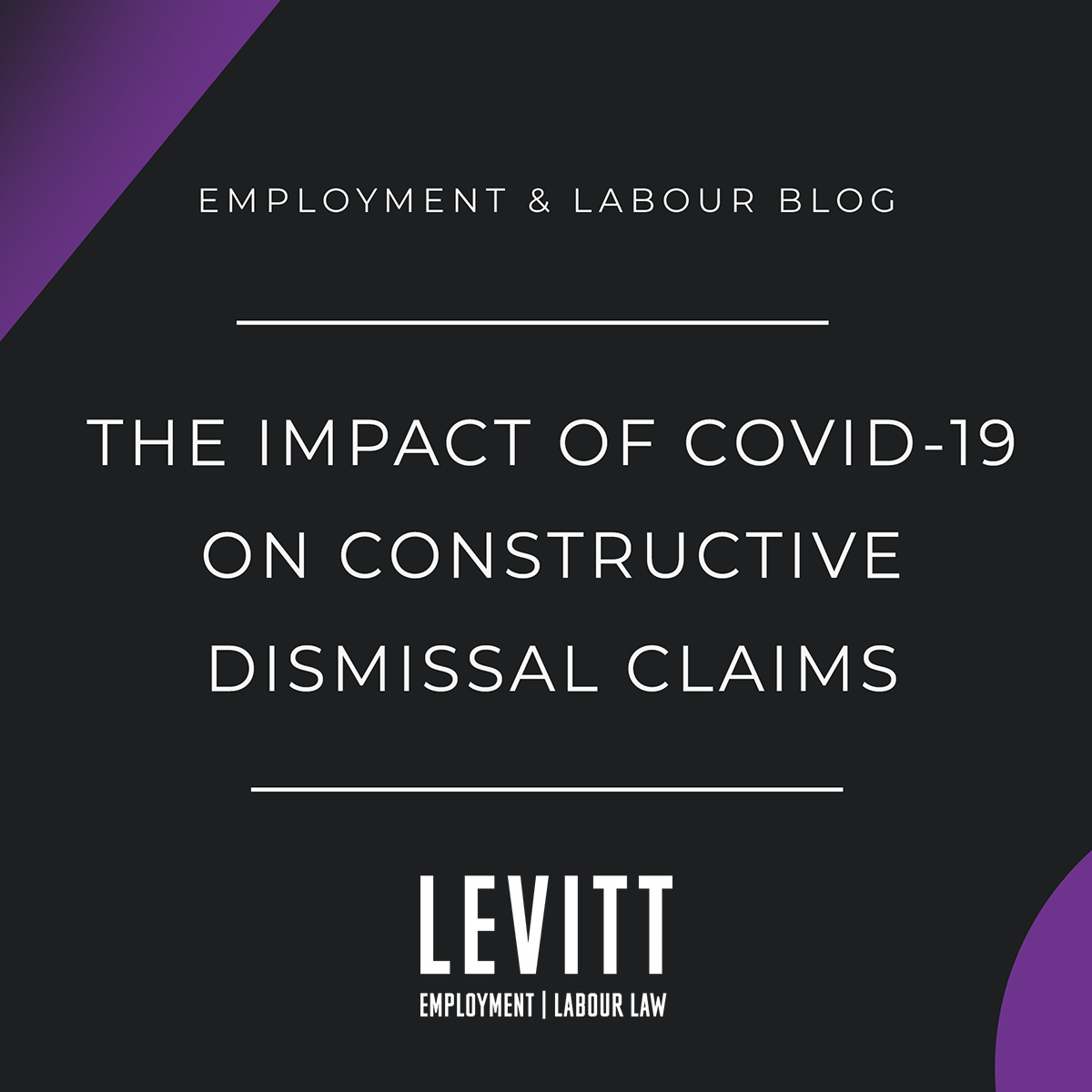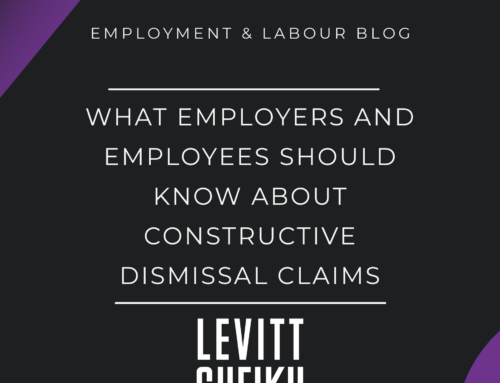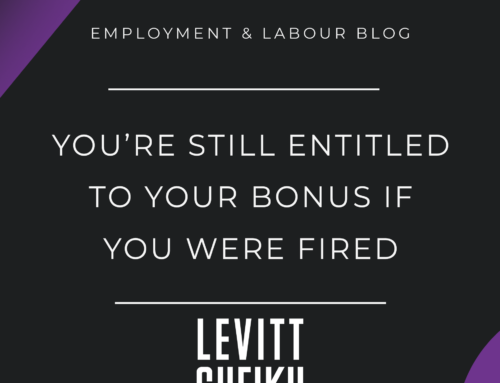In today’s blog, we will look at a constructive dismissal as it relates to COVID-19. Employers beware… Employees, take note.
The case of Kosteckyj v Paramount Resources Ltd, 2021 ABQB 225, was brought by Olga Kosteckyj, a former Senior Integrity Engineer in the Pressure Equipment Integrity team at Paramount. Paramount is a publicly traded company that works in petroleum and natural resources. While at Paramount, Kosteckyj led the management system and delivered training to team members. While she did not have anyone directly reporting to her, she performed many management responsibilities.
When COVID-19 began, Paramount stated they would be starting a cost reduction program across the company. This meant all employees would get a 10% salary reduction, a suspension of the pension program and delay or cancellation of bonuses for that year. For Kosteckyj, who earned $154,800, a 6% RRSP and an annual bonus, this meant a salary cut, the cancellation of her RRSP contribution, and unknown status of her bonus. Twenty-five days later, Kosteckyj was terminated without cause by Paramount.
Even though Kosteckyj accepted the pay cut, she sued for wrongful dismissal damages based on her full salary (pre-salary reduction), and the trial court sided with her. A constructive dismissal claim arises when an employer fundamentally alters a term or condition of an employee’s employment. Since she had been with Paramount for six and a half years and the reduction of income was a significant breach of her employment contract, Kosteckyj was constructively dismissed when the cost reduction was put in place 25 days before her termination, even though she did not resign or protest the pay reduction.
However, on appeal in Kosteckyj v Paramount Resources Ltd., 2022 ABCA 230, the Court of Appeal of Alberta took issue with the trial judge’s decision as it related to whether Kosteckyj accepted or acquiesced to the change in compensation. The court held that ten business days constituted a reasonable period of time for Kosteckyj, a professional engineer who is healthy, knowledgeable, and informed, to collect the information necessary to decide whether to accept or reject the changes in her employment terms. Since she brought her application six months after the changes were made, this time period had passed. The court continued in this line of reasoning, stating that an employee without the attributes of Kosteckyj would need no more than fifteen business days to make such a decision. As a result of this finding, the Court of Appeal reassessed the damages based on Kosteckyj’s reduced pay that she had acquiesced to.
This appeal decision is important both for employers and for employees, as it provides certainty (at least in the province of Alberta and is persuasive elsewhere) on what constitutes a reasonable period of time for an employee to decide whether to accept or reject changes to employment terms. For employees, it illustrates the importance of immediately assessing changes made to their respective employment relationships as, after a “reasonable” period of time, their rights to bring a constructive dismissal claim may no longer be available. For employers, it makes clear the importance of keep up-to-date documentation, including all correspondence made between the employer and the employee, should it be necessary to argue that the employee had accepted the changes. The changes should be in writing, should be clearly communicated to the employee, and the date on which the changes were communicated should be recorded.
To learn more about whether or not you have a lawsuit contact us today.
Choose Levitt LLP When You Can’t Afford to Lose






